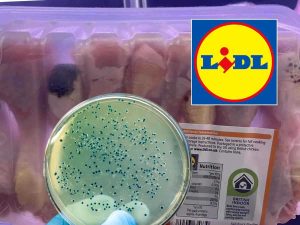What is life Insurance
Life insurance is simply a financial safety net for your loved ones should anything happen to you. You pay a premium each month to receive the cover and should you pass away during the set policy term a cash lump sum will be paid to your dependants.
The proceeds from a life insurance policy are commonly used to clear a mortgage (enabling your loved ones to remain in the family home), cover future living costs and household bills, provide an inheritance, and meet rising funeral costs. As a result, it is a form of insurance particularly suitable for those with young children and/or a mortgage.
However as identified in our Alcohol – The State of Play article earlier this year, alcohol abuse in the UK is on the rise, impacting both the health and the economy of the country.
But how does our alcohol intake or past dependency impact our life insurance? Below we comprehensively explore all the key questions.
If l have a history of alcoholism, will l be declined life insurance?
No, if you are a recovering addict, it does not necessarily mean that you will be declined outright, however insurers will access each application on a case-by-case basis. What’s more, the underwriting criteria can differ between providers, and therefore even if you are turned down by one insurer it does not mean you will be declined by all. As a result, it is always a good idea to compare multiple quotes when shopping for a policy.
If you have been alcohol dependant in the past, insurers will require a specified period of sobriety before they will offer you life insurance cover. The length of the sobriety period varies between insurers but is usually between 2 – 5 years.
Once this period has been met you may be able to secure life insurance on standard terms, however the insurer will also access other risk factors such as any medical conditions, your smoking status and your weight.
Please note, although it may be tempting to withhold certain information from your insurer to secure a lower premium, it is important that you are 100% open and honest during the application. Failure to do so is known as non-disclosure and is a form of insurance fraud which could jeopardise a future pay out, rendering your selfless investment a waste of money.
If you are currently alcohol dependent, unfortunately it is highly likely that your application will be declined. Especially if you have been received medical advice to stop drinking or have health problems because of your drinking.
Lastly, insurers are not there to judge your lifestyle habits; however, they do need all the required information in order to accurately calculate your premium.
Do insurers ask about alcohol consumption?
Yes, as part of a standard application process applicants are asked about their alcohol consumption. If you are in recovery the insurer will also ask about your previous drinking habits, such as how long you have been sober and how long you were living with alcoholism, (see more information below).
Why do insurers ask about your alcohol intake?
As we know alcohol can have a very negative affect on your overall health and wellbeing and therefore a high consumption makes a future claim statistically more likely.
According to research by alcoholchange, alcohol misuse is now the single biggest risk factor for death and ill health among those aged 15 – 49. As a result, insurers mitigate this increased risk by increasing (or loading) premiums.
If you do currently drink but are looking to reduce your regular consumption, why not trial an alcohol moderation app.
Will I be required to undergo a medical exam?
Whilst possible, in most cases, you will not be required to undertake a medical exam to secure cover. If you do require a medical, all costs will be covered by the insurer.
If the insurer requires more information, it is more likely that they will request a medical report from your doctor to establish whether your alcohol habits have impacted your health and if so, to what extent. Please note, the insurer will need to ask your permission before they are able to access this personal information.
What questions will l be asked during the application?
If you have disclosed to the insurer that you have experienced alcohol dependency or drunk to excess in the past, you will be asked some additional questions so that they can gain a greater understanding of your health.
If is likely that you will be asked about the following:
- The period of your alcohol abuse?
- How long you have been in recovery?
- Do you have any medical conditions related to your drinking?
- Whether you have received any treatment or counselling?
If after the alcohol related questions your intake is below what the insurer deems moderate, you will not be required to answer the above.
What is classed as ‘normal’ alcohol consumption by insurers?
The current recommended level for alcohol consumption is 14 units per week. This equates to appropriately 6 glasses of wine (175ml) or 6 pints of average strength beer (4% vol). Anything over this threshold will probably be deemed above normal by insurers.
If you are now completely sober, then well done, you may be able to secure a lower premium. All other things being equal, the higher your alcohol consumption, the more your monthly premium will be.
As well as your alcohol consumption, your smoking status, age and medical history are key criteria insurers’ look at when determining the cost.
Does life insurance pay out for alcohol related deaths?
Yes, rest assured, as long as you were truthful during the application process your policy will pay out to your loved ones if you were to pass away directly or indirectly as a result of alcohol.
In summary
Life insurance is not the most glamorous of topics and it can be incredibly hard to discuss our mortality with our nearest and dearest. However, it could be one of the most astute purchases you ever make, especially if you have a family who rely on your income.
If your alcohol consumption is considered moderate, it should not impact the cost of your cover much, if at all. However, if you have or have had substance abuse problems in the past it is still important to try and secure the financial future of your family. If you are what is deemed a ‘non-standard’ applicant in can be a good option to use a regulated insurance broker who can source multiple quotes from both major and specialist impaired providers, as well as guiding you through the application.
We hope the above has provided some valuable insight into how insurers view alcohol and how it may impact your life insurance policy in 2024.




